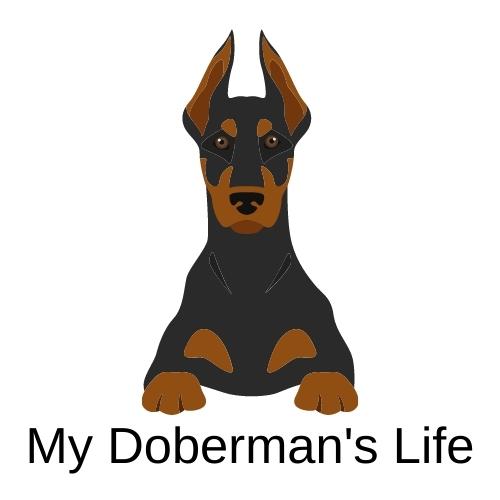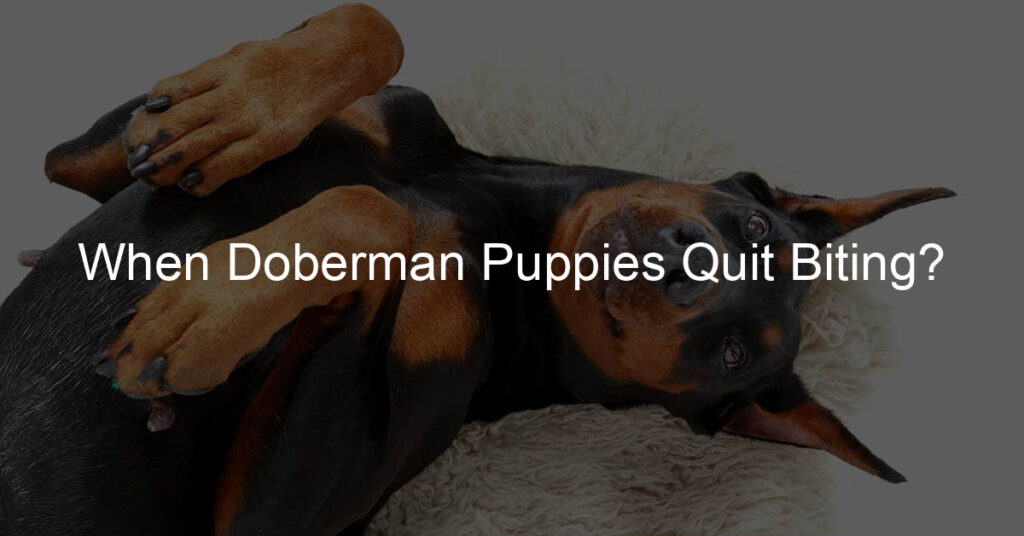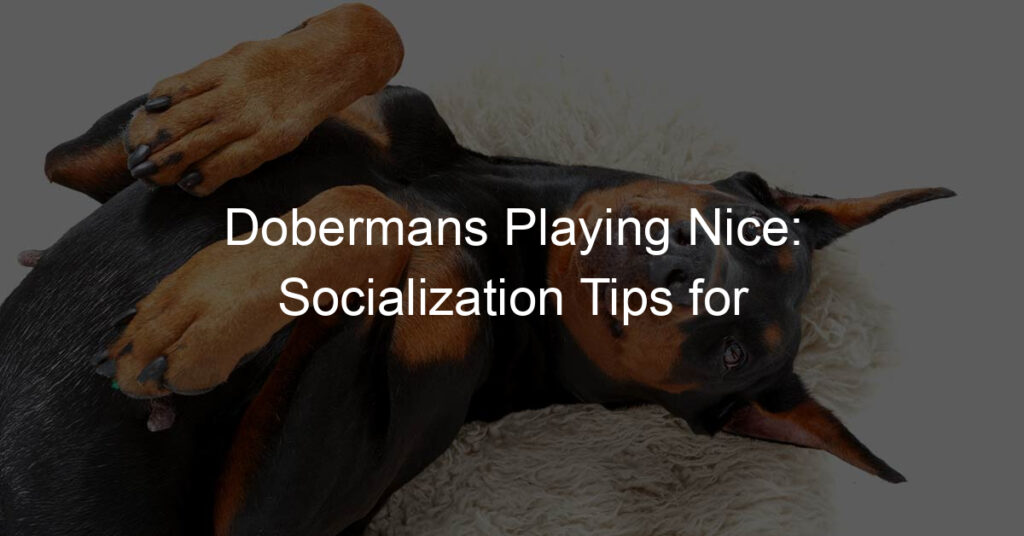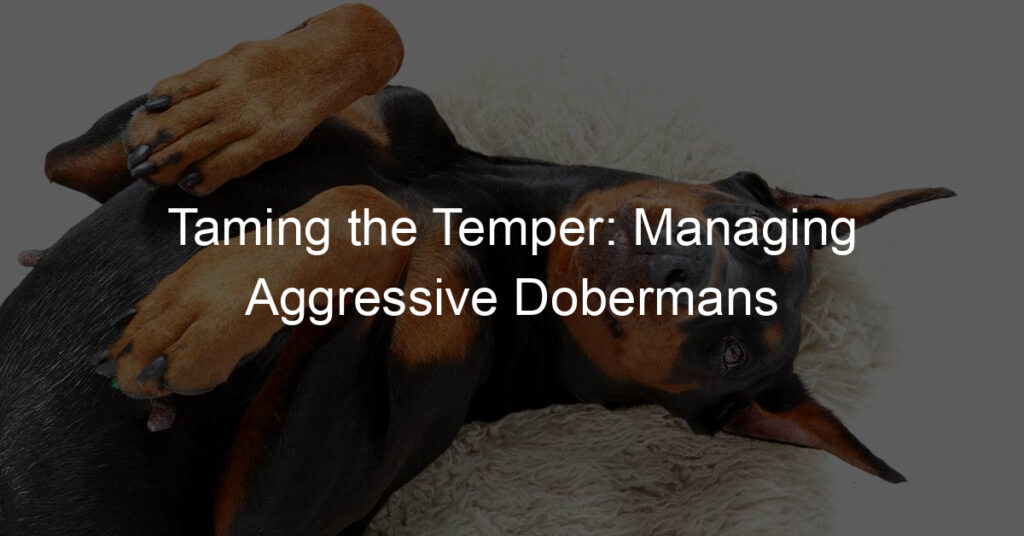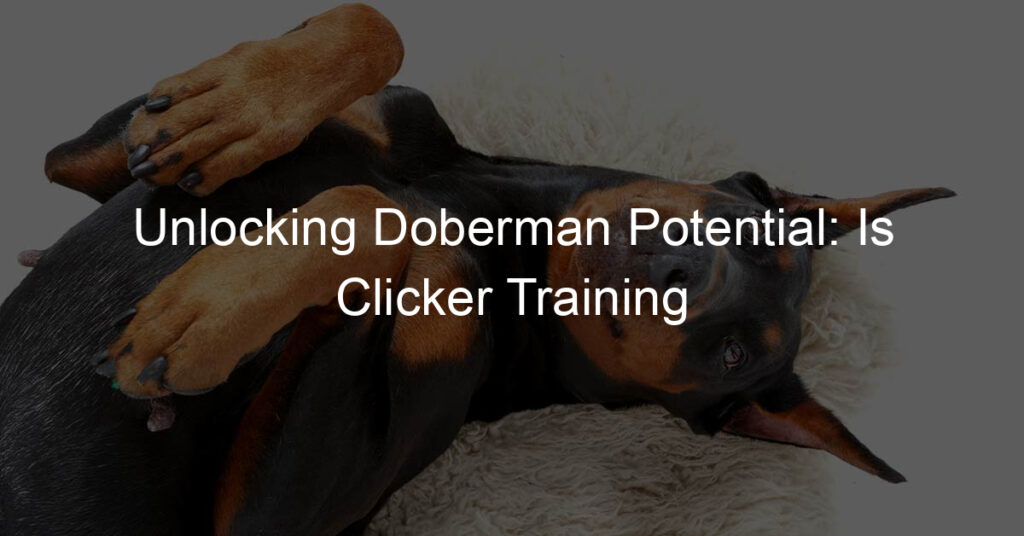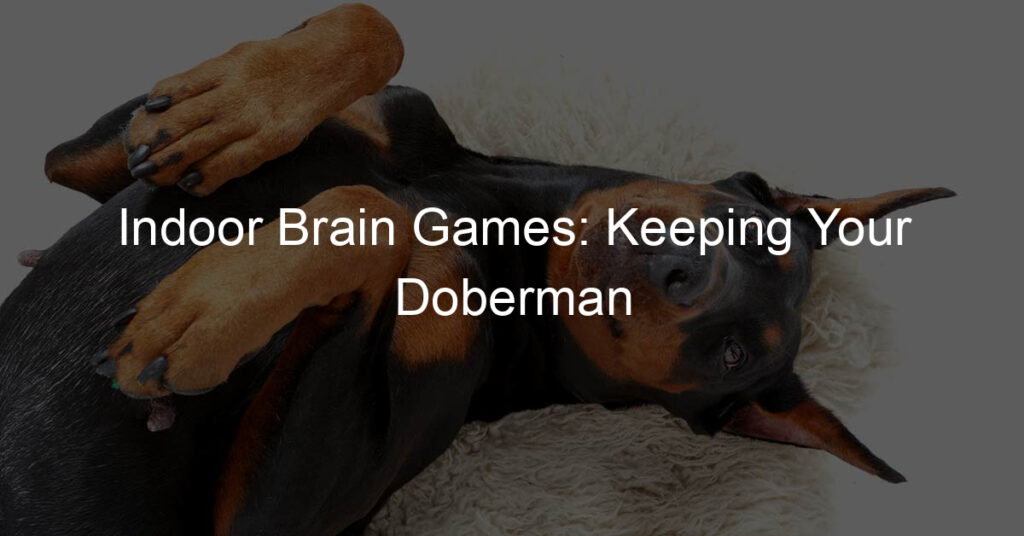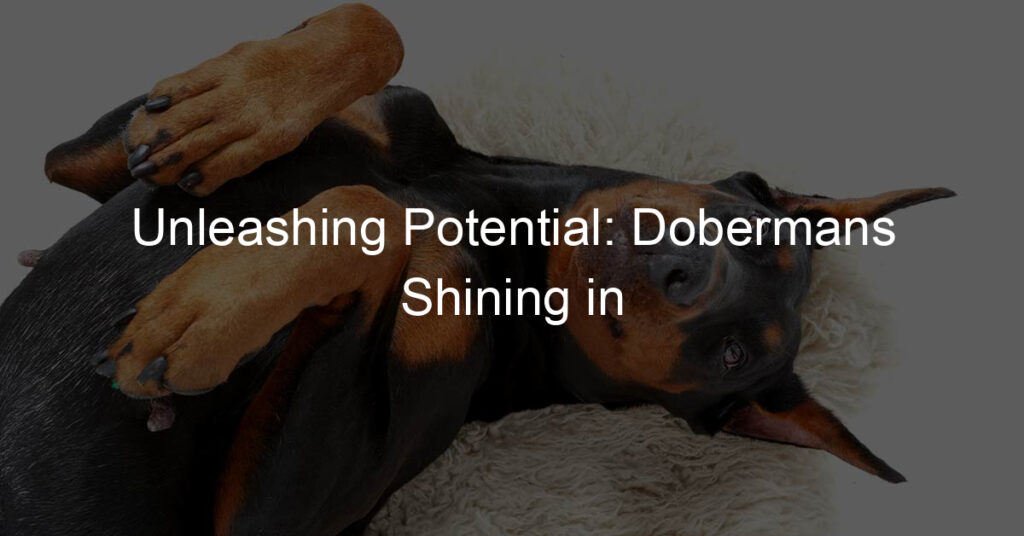Do you have a Doberman puppy at home and constantly find yourself ducking for cover? Does the excitement of playtime bring back memories of getting nipped as your pup tried to show affection with their bite? If so, you’re not alone.
Many owners struggle with getting these clever, active dogs to break the habit of using their teeth when playing or showing enthusiasm. The good news is that most Dobermans can be trained out of this behavior – but it takes patience and persistence! Read on to learn more about why puppies bite and how you can tackle the problem in your house.
How do I get my Doberman puppy to stop biting?
Trying to get a Doberman puppy to stop biting is an age-old challenge. The key to success is consistency and training! Set boundaries with your pup from the start, like not allowing them near you when they are in an excited biting mood. Provide lots of chew toys for them to play with instead of their teeth, and offer rewards for good behavior.
If your pup does not stop biting, try training classes with professionals who can show you how to properly reinforce positive behaviors. With patience and understanding, it’s possible to train your pup out of the habit in no time!
Why does my Doberman puppy bite so much?
Puppyhood can be a fun and challenging time for both puppy and owner alike! Biting and nipping are natural behaviors that all puppies go through, but when it comes to Dobermans, the breed’s energetic, outgoing nature makes them susceptible to more biting than usual. Understanding why your pup is getting mouthy can help you deal with the behavior more effectively.
If your pup is teething, providing chew toys and treats that are meant for teething can satisfy her need to gnaw while still being gentle on her gums. If she’s playful and rambunctious, some exercise should wear her out so she won’t be looking for attention by playing too aggressively. Setting clear boundaries of what is acceptable play and what isn’t can also do wonders in helping her understand where she stands with this behavior.
It may be difficult at first as puppies love to explore their mouths on just about anything they can latch onto – but with patience and consistency, your pup will quickly learn that biting isn’t the way to get your attention!
At what age do Dobermans become aggressive?
Dobermans can be gentle, loyal companions when raised properly, but if not socialized and trained to accept people and other animals from a young age, they have the potential to become aggressive. Because of their large size and protective nature, any aggression will almost certainly be more intense than with smaller breeds.
Generally speaking, these dogs reach full maturity around age two or three and then enter the prime of their life for another five years or so. It’s best to start socializing them as early as possible to ensure these beautiful animals are well-mannered throughout their life. It’s important to remember that no breed is naturally aggressive; it largely comes down to how someone chooses to raise their pet.
Are Dobermans known for biting?
Dobermans have had a bad rap in the past, being regarded as aggressive and dangerous. To answer the question: yes, they are known to bite, but it’s important to remember that no dog should be expected to never bite – all dogs can lash out if they feel scared or threatened. While they may get a bad reputation in comparison to other breeds due to their stature and reputation for guarding, there are certain steps that owners can take to ensure their pet is happy and safe and less likely to bite.
Start by making sure your Doberman gets plenty of exercises and is trained correctly – this will help them be more comfortable around other animals and humans alike. With consistency from a young age, any breed of dog can be well-behaved in all situations.
Why is my Doberman biting me?
If you find yourself wondering why your beloved Doberman is biting you, chances are it’s a sign of some frustration and fear on their part. It could be that they are trying to communicate with you or that they’ve experienced something in the past that caused them to mistrust people. Whatever the root cause may be, it’s important to identify what is causing this behavior and put an end to it quickly for safety reasons.
If you aren’t sure what steps to take, consulting with a professional pet trainer or animal behaviorist may be able to help. Taking the time to figure out why your four-legged friend is biting will help them feel secure and prevent further incidents from happening.
How do you calm a hyperbiting puppy?
Every puppy is different, so what may work for one pup may not work for another. However, there are some things you can try to calm an overly excited and biting pup! One of the first steps is to ensure your pup is getting enough exercise. If a puppy is full of energy and is not able to burn that energy in healthy ways, it may begin to express it through biting.
Depending on the age of your pup, taking them out for several walks or play dates a day can go a long way in draining their energy resources. Additionally, teaching them basic obedience commands such as sit and stay will help with over-excitement too. Providing calming cues when your pup needs it like speaking softly or offering treats when they settle down will reinforce their positive behavior and help you have a better relationship with your furry friend.
How do you discipline a Doberman?
When it comes to disciplining a Doberman, consistency is key. Like any other type of dog, Dobermans respond well to rewards-based training as opposed to punishments. Make sure you reward even small successes with verbal praise or treats to encourage good behavior.
The same command word must be used each time for a particular behavior such as a calm and firm “No” for behaviors like jumping on people or “sit” for sitting down. This will teach them what you expect of them and what kinds of behaviors are not allowed. Remember that when disciplining a Doberman, patience, and understanding go a long way – with correct discipline, you’ll have a friendly and obedient pup in no time!
What to do if a Doberman bites you?
If you find yourself in the unfortunate situation of being bitten by a Doberman, there are several steps you should take. Firstly, seek medical attention immediately to ensure there is no risk of infection. Afterward, try to remain calm and speak in an even-toned voice so that you don’t startle the dog any further.
It can also be helpful to pet or give treats to the dog (if it is safe to do so) if you happen to know its owner; this may help reduce its fear and show that it did not hurt you intentionally. Remember that dogs are animals, and some dogs may become defensive or aggressive due to fear or pain, so make sure to be as mindful of their feelings as possible when interacting with them.
Are Dobermans difficult puppies?
Dobermans are a breed of powerful and impressive-looking dogs, but often people are worried that they may be too difficult to handle as puppies. Despite this fear, Dobermans can be incredibly gentle and loyal creatures, with many experienced dog owners swearing for their calm personality and intelligence.
Having said that, it’s important to keep in mind that every puppy needs an experienced hand to break bad habits; Dobermans included! With patience and commitment from the owner, these delightfully playful pups can provide plenty of life-long joy for you and your family.
Conclusion
Although it may seem like your Doberman puppy’s nipping and biting will never end, there is hope. With consistency and patience, you can train your pup to be gentle and results start to show within a few weeks. Socializing them with other pets will also help them learn how to control their bites.
Don’t forget about positive reinforcement when training them; rewards in the form of treats will motivate your pup to learn faster. Remember that every dog is different; so what worked for one may not always work for another. Nonetheless, if you remain dedicated and continue to use the methods we discussed today, soon enough your furry companion will have outgrown the habit of biting!
